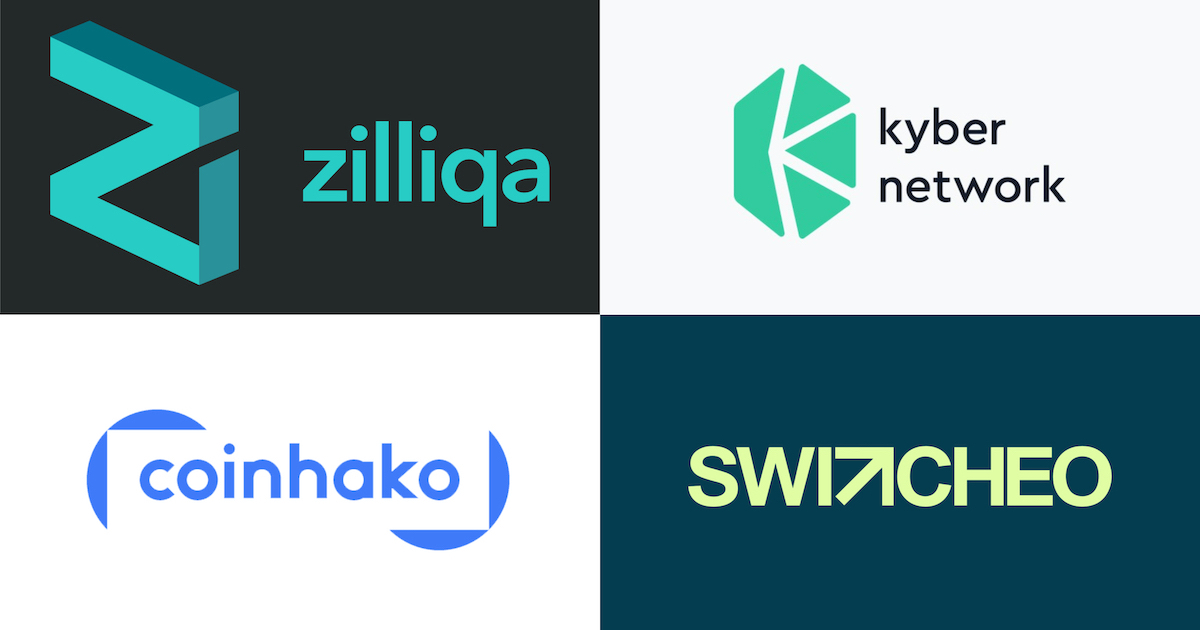crypto companies melbourne Exploring the Local Scene
crypto companies melbourne sets the stage for this enthralling narrative, offering readers a glimpse into a story that is rich in detail and brimming with originality from the outset.
In recent years, Melbourne has emerged as a vibrant hub for cryptocurrency innovation, showcasing a diverse array of companies that cater to various aspects of the crypto ecosystem. From trading platforms to blockchain consultancies, the city's landscape is dotted with major players making significant strides in technology and investment opportunities. As these companies evolve, they not only shape the local economy but also contribute to the global dialogue around cryptocurrency and blockchain solutions.
Overview of Crypto Companies in Melbourne

Melbourne has emerged as a vibrant hub for cryptocurrency and blockchain technology, characterized by a diverse landscape of innovative companies. This city, known for its thriving tech scene, has seen a surge in the number of crypto startups and established firms venturing into the blockchain space. The influx of investment and talent has contributed to the growth of a robust crypto ecosystem in the region.
The major players in the local crypto industry include exchanges, wallet providers, and blockchain consulting firms. Companies like Independent Reserve and CoinSpot have positioned themselves as leading crypto exchanges, while others like Mycelium have made a mark with their wallet services. The growth of these firms reflects not only the increasing popularity of cryptocurrencies but also the evolution of consumer services and institutional interest in blockchain technology.
Services Offered by Melbourne’s Crypto Companies
Melbourne's crypto companies offer a wide range of services catering to both individual and institutional clients. These services include cryptocurrency trading, digital wallets, blockchain consulting, and educational resources. The diversity of offerings indicates the city's commitment to fostering a comprehensive crypto ecosystem.
- Trading Services: Platforms like CoinSpot and Independent Reserve provide secure and user-friendly interfaces for trading various cryptocurrencies. Their services often include advanced trading features such as margin trading and automated trading bots.
- Wallet Services: Companies like Mycelium and Ledger offer digital wallets that ensure the safe storage of cryptocurrencies, combining convenience with robust security features.
- Consulting Services: Firms like Blockchain Australia provide consulting services to enterprises looking to integrate blockchain technology into their operations, highlighting the innovative use of blockchain across sectors.
Local firms are also at the forefront of technological innovations, exploring advancements in areas like DeFi (Decentralized Finance) and NFT (Non-Fungible Token) marketplaces. These innovations are transforming how transactions are conducted and assets are managed.
Regulatory Environment for Crypto in Melbourne
The legal framework governing crypto companies in Australia is evolving, with regulations aimed at ensuring consumer protection and fostering innovation. The Australian Securities and Investments Commission (ASIC) plays a crucial role in overseeing the crypto market, establishing guidelines for businesses operating in this space.
When compared to other major cities, Melbourne's regulatory environment is relatively progressive. The city benefits from clear guidelines that help legitimize crypto operations while also ensuring compliance with anti-money laundering (AML) and counter-terrorism financing (CTF) laws. However, these regulations can also pose challenges for firms trying to navigate the compliance landscape.
The implications of these regulations on crypto business operations are significant. Companies must invest in compliance systems and practices, which can lead to increased operational costs but ultimately strengthens consumer trust and market integrity.
Investment Opportunities in Melbourne's Crypto Scene
Melbourne presents a variety of potential investment avenues through its local crypto companies, ranging from established firms to promising startups. Investors looking to enter the crypto market can explore opportunities in trading platforms, wallet services, and blockchain solutions.
Here are some notable startups and projects making waves in Melbourne's crypto market:
- CoinSpot: One of Australia's leading cryptocurrency exchanges, offering a wide range of digital assets for trading.
- Block8: A blockchain consulting firm helping businesses leverage blockchain solutions for various applications.
- CryptoTaxCalculator: An innovative tool that simplifies tax reporting for cryptocurrency transactions.
Investing in this sector comes with its share of risks and rewards. While the potential for high returns exists, market volatility and regulatory uncertainties can pose challenges for investors.
Community and Events Supporting Crypto in Melbourne
The crypto community in Melbourne is vibrant and active, with numerous meetups, conferences, and workshops designed to promote education and networking. Events such as the Melbourne Blockchain Summit and various hackathons attract enthusiasts, developers, and investors alike, fostering collaboration and knowledge sharing.
Local organizations play a vital role in promoting crypto education, offering workshops and resources for newcomers and experienced users. Initiatives like the Blockchain Innovation Hub are instrumental in supporting startups and facilitating networking opportunities within the community.
Community-driven efforts also contribute to the growth of blockchain innovation in Melbourne, with initiatives aimed at addressing real-world problems through technology. These efforts not only bolster the local economy but also position Melbourne as a leader in the global crypto arena.
Challenges Faced by Crypto Companies in Melbourne
Crypto companies in Melbourne face specific challenges that can impact their operations and growth. These hurdles include regulatory pressures, market volatility, and challenges related to consumer adoption. As the market evolves, firms must continuously adapt to changing regulations and consumer expectations.
Market volatility can significantly affect businesses, particularly those heavily involved in trading and investment. Fluctuations in cryptocurrency prices can lead to unpredictable revenue streams, making financial planning difficult for local firms.
Additionally, misconceptions about the crypto industry persist among the general public. Many people associate cryptocurrencies solely with illicit activities or view them as a speculative bubble, which can hinder broader acceptance and adoption.
Future Trends in Melbourne's Crypto Industry
Looking ahead, several trends are likely to shape the future of crypto companies in Melbourne. The rise of DeFi platforms and NFT markets is anticipated to continue, driving innovation and attracting investment. These emerging technologies are set to transform how financial transactions and asset ownership are perceived and managed.
Furthermore, increased interest from institutional investors may lead to the development of more sophisticated financial products within the crypto space. As companies in Melbourne adapt to these trends, they will need to focus on scalability and security to meet the demands of a growing user base.
Key factors influencing the growth of the crypto market in Melbourne will include regulatory clarity, technological advancements, and the ongoing evolution of consumer attitudes towards cryptocurrencies. As the industry matures, firms that prioritize innovation and compliance are likely to thrive in this dynamic environment.
Final Conclusion

In conclusion, the crypto scene in Melbourne is marked by a dynamic mix of innovation, community support, and regulatory challenges. As local companies continue to adapt and grow, they are paving the way for exciting investment opportunities and advancements in blockchain technology. Staying informed about the latest trends and developments will be crucial for anyone looking to engage with this rapidly evolving sector.
Questions Often Asked
What types of services do crypto companies in Melbourne offer?
They provide a range of services including trading platforms, digital wallets, consulting, and blockchain development solutions.
How does the regulatory environment affect these companies?
The regulatory framework in Australia impacts operational compliance, affecting how these companies conduct business and manage customer relations.
Are there any notable crypto startups in Melbourne?
Yes, several promising startups are emerging, focusing on innovative solutions in trading, payments, and blockchain technology.
What are the common challenges faced by crypto companies in Melbourne?
They often deal with market volatility, regulatory uncertainty, and public misconceptions about cryptocurrency.
How can someone get involved in the crypto community in Melbourne?
Participating in local meetups, attending conferences, and joining workshops are great ways to connect with others in the crypto space.








